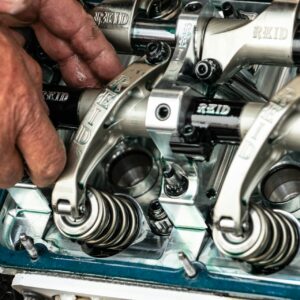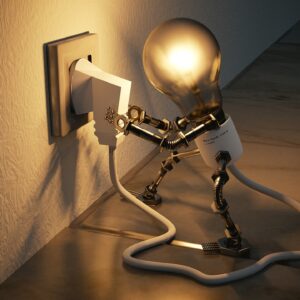Pondering over the perfect protection plan for your power equipment purchase? Perplexed by the plethora of warranty options available? Fear not, this article will help you navigate the maze of warranties and make an informed decision. Power equipment is an investment that requires careful consideration of the warranty options available. With a range of warranties available, from standard manufacturer warranties to extended warranties, it can be overwhelming to determine which one is right for you. In this article, we will explore the different types of warranties available, the factors to consider when choosing a warranty, and how to make the most of your power equipment warranty. So, let’s dive in and get a better understanding of the warranty options available for your power equipment purchase.
Types of Warranties for Power Equipment
The various types of coverage available for machinery are explored in this section. When it comes to power equipment, there are typically three types of warranties: limited warranties, extended warranties, and lifetime warranties.
Limited warranties cover specific parts or defects for a set period of time, while extended warranties provide additional coverage beyond the standard warranty period. Lifetime warranties, on the other hand, offer coverage for the entire life of the product.
It’s important to note that warranty coverage can vary widely between manufacturers and products, so it’s essential to read the fine print before making a purchase. Additionally, most warranties come with warranty exclusions, which are situations or circumstances that are not covered under the warranty.
These exclusions can include things like normal wear and tear, damage caused by misuse or neglect, and repairs made by unauthorized dealers. Understanding the types of warranties and the exclusions associated with them can help you make an informed decision when purchasing power equipment.
Standard Manufacturer Warranties
This section breaks down what’s covered by the basic protection plan, like a safety net for your investment. Standard manufacturer warranties typically cover defects in material and workmanship for a specified period of time, usually ranging from 1 to 3 years.
This means that if your power equipment experiences any issues due to faulty parts or poor craftsmanship within the warranty period, the manufacturer will repair or replace the equipment free of charge. However, it’s important to note that manufacturer warranty coverage may have limitations and exclusions.
For example, the warranty may not cover damage due to misuse, neglect, or normal wear and tear. Additionally, some manufacturers may require that the equipment be serviced by authorized technicians in order for the warranty to remain valid. It’s crucial to read the fine print of the warranty before making a purchase, so you understand what’s covered and what’s not.
Extended Warranty Options

You might be wondering if you can protect your investment even further, and the answer is yes! There are extended warranty plans available that offer additional coverage for unexpected repairs and maintenance.
However, before you decide to purchase an extended warranty, it’s important to understand the cost comparison and coverage limitations. Extended warranties can add up to several hundred dollars, so it’s important to weigh the cost against the likelihood of needing repairs beyond the standard manufacturer warranty.
Additionally, some extended warranties have coverage limitations, such as only covering certain types of repairs or excluding specific parts. Make sure to read the fine print and understand exactly what is covered and what is not before making a decision.
Factors to Consider When Choosing a Warranty
When picking a protection plan, ponder on the points that play a pivotal role in the plan’s practicality and price. Coverage limitations are one of the major factors to consider when choosing a warranty for your power equipment. You need to know what the warranty covers and what it doesn’t.
Some warranties only cover certain parts or repairs, while others offer comprehensive coverage. Make sure you understand the limitations of the warranty you choose, so you can make an informed decision.
Pricing considerations are also important when choosing a warranty for your power equipment. You want to make sure you’re getting a good value for your money. Compare the prices of different warranty options and see which one offers the best coverage for the price.
Keep in mind that the cheapest option may not be the best choice if it doesn’t provide adequate coverage. Take the time to research and compare different warranty plans, so you can find one that fits your needs and budget.
Making the Most of Your Power Equipment Warranty
To optimize your coverage, it’s important to fully utilize your warranty benefits for all of your machinery. One way to do this is by thoroughly reading and understanding the terms and conditions of your warranty. This will help you identify the specific coverage and limitations of your warranty, so you can make informed decisions when it comes to filing a claim.
Additionally, it’s important to keep all documentation related to your machinery and warranty in a safe and easily accessible place. This includes receipts, manuals, and any correspondence with the manufacturer or dealer. By having this information readily available, you can streamline the claim process and ensure that all necessary documentation is included.
Another way to maximize your coverage is by taking proper care of your power equipment. This includes following the manufacturer’s recommended maintenance schedule and using the equipment as intended. Any damage caused by misuse or neglect may not be covered under your warranty, so it’s important to take preventative measures to avoid any potential issues.
Lastly, if you do need to file a claim, be sure to follow the claim process tips provided by the manufacturer or dealer. This may include providing detailed information about the issue, providing photographic evidence, or working with an authorized repair center. By following these tips and utilizing your warranty benefits to their fullest extent, you can ensure that your power equipment is protected and functioning properly for years to come.
Frequently Asked Questions
Can I transfer my power equipment warranty to someone else if I sell the equipment?
Are you planning on selling your power equipment but worried about the warranty? Well, you’re in luck! It’s possible to transfer the warranty ownership to the new owner.
However, there are some legal implications that you need to consider. First, make sure to check the terms and conditions of the warranty to see if it allows for transfer of ownership. If it does, you’ll need to fill out some paperwork and provide proof of sale.
Keep in mind that transferring the warranty does not absolve you of any responsibility for damages caused by the equipment. It’s always best to be upfront and transparent with the new owner about the warranty status.
Now you can sell your equipment with peace of mind knowing that the warranty can be transferred!
Is accidental damage covered under a power equipment warranty?
Accidental damage isn’t always covered under a power equipment warranty. Coverage limitations vary depending on the specific warranty you’ve purchased. It’s important to carefully review your warranty and understand what’s covered and what’s not.
If you do experience accidental damage that’s covered under your warranty, you’ll need to file a warranty claim. This typically involves contacting the manufacturer or retailer and providing them with information about the damage. They’ll then determine whether the damage is covered and what steps you need to take to have it repaired or replaced.
Make sure you understand the process for filing warranty claims before you need to do so, so you can act quickly and minimize any downtime for your equipment.
Will my warranty be voided if I perform maintenance or repairs myself instead of taking it to a professional?
Performing DIY repairs on your power equipment may void the warranty if not done according to the manufacturer’s guidelines. It’s important to read and follow the instructions provided by the manufacturer before attempting any repairs or maintenance. Failure to do so may result in damage to the equipment and void the warranty, leaving you responsible for any repair costs.
If you’re unsure about how to perform a repair, it’s best to take the equipment to a professional for service. Keeping up with regular maintenance and following the manufacturer’s guidelines will help ensure that your power equipment remains in good working condition and that your warranty remains valid.
Are there any restrictions on where I can take my equipment for warranty repairs?
Did you know that over 70% of power equipment owners take their equipment to authorized repair centers for warranty repairs? It’s important to note that if you want to make a warranty claim, you’ll likely need to take your equipment to an authorized repair center. These centers are trained to properly diagnose and repair your equipment, ensuring that it’s done correctly and your warranty remains valid.
It’s important to understand the warranty claim process and know the restrictions on where you can take your equipment for repairs to avoid any issues with your warranty.
Can I purchase a warranty for used power equipment?
When it comes to purchasing a warranty for used power equipment, there are a few things to keep in mind.
Firstly, it’s important to understand the benefits that come with a warranty. A warranty can provide peace of mind, protect against unexpected repair costs, and potentially increase the resale value of the equipment.
However, there are also limitations to purchasing a warranty for used equipment. Some warranties may have restrictions on the age or condition of the equipment, and may not cover all repairs or damages.
Before buying a warranty for used power equipment, consider factors such as the age and condition of the equipment, the cost of the warranty, and the likelihood of needing repairs.
It’s important to weigh the potential benefits against the limitations and costs to determine if a warranty is the right choice for you.
Conclusion
Congratulations! You’re now equipped with the knowledge on how to choose the best warranty for your power equipment.
Remember, warranties are like shields that protect your investment and secure your peace of mind. They act as a symbol of confidence in the quality of the product and the manufacturer’s commitment to customer satisfaction.
Do not let the fear of additional costs or complex terms and conditions deter you from investing in a warranty. Instead, view it as a sign of responsibility and foresight.
By making the most of your warranty, you’re ensuring that your power equipment will serve you for years to come. So go ahead, make your purchase with confidence, and enjoy the benefits of a well-protected investment.





